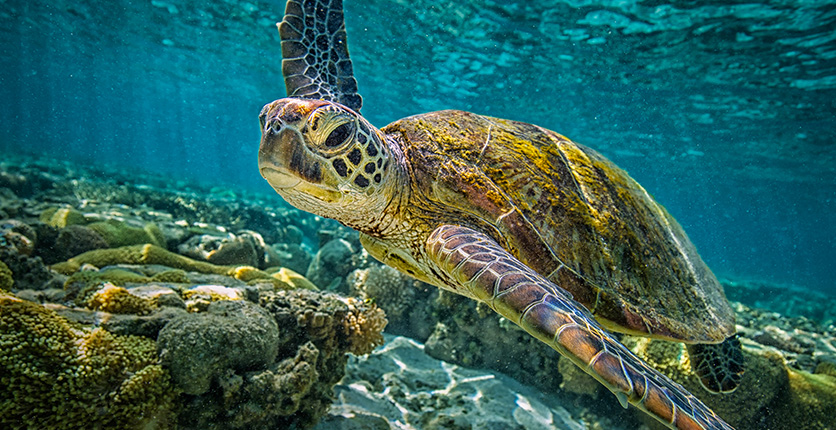According to the World Tourism Organization, global tourism hit a record high of 1.4 billion international arrivals in 2018, representing a 6 per cent rise over the previous year.
What’s even more remarkable is that this figure was reached two years ahead of forecast. With so many people travelling, it’s even more important for both the tourism industry as well as tourists to engage in sustainable practices.
“Travel is one of life’s greatest gifts. We know we can’t change the world, but today it’s imperative that we do our part to ensure that our impact is a positive one,” says Gavin Tollman, CEO of travel company Trafalgar.
Sustainable tourism is also becoming more popular as it comes with this feel-good factor of giving back, says Alicia Seah, director, public relations & communications, Dynasty Travel. “We’ve definitely seen an increase in rail travel by about 25 per cent in 2019 compared to 2018. These figures will continue to rise in 2020.”
NSman looks at some emerging eco-friendly travel trends from around the world.
Carbon-offsetting programmes
To mitigate the carbon footprint from air travel, the travel industry is increasingly providing travellers with the option of carbon offsetting, which are financial contributions dedicated to eco-friendly projects elsewhere to alleviate the CO2 emissions made by one’s travels.
Many airlines are now offering carbon-offsetting programmes, such as easyjet, which just announced plans to become the world’s first major airline to operate with net-zero carbon across its flight network, and British Airways, which began offsetting its carbon emissions on all flights within the UK in 2020.
Since 2019, the International Air Transport Association has also announced that airlines are required to report to their governments on their carbon emissions under the Carbon Offsetting Scheme for International Aviation.
Off-season travel
In the face of world destinations experiencing burgeoning tourist numbers, travellers are opting for more off-season travel to avoid the crowds as well as to enjoy more competitive prices. Seah says: “It’s a shift that will help ease all the challenges associated with over-tourism, including their impact on the local environment and infrastructure.”
Tollman adds: “To ensure the longevity of local businesses, it’s important to drive tourism activity beyond the peak season and promote year-round travel. There is magic in destinations in all seasons.”

Wildlife and nature-based tourism
With growing tourist interest to engage in sustainable practices such as animal and flora conservation while on vacation, wildlife and nature-based tourism has also grown to emerge as a newly popular itinerary.
A plethora of new tours launched in this segment include bear-tracking ecotourism in Central and Eastern Europe from EU private conservation initiative Foundation Conservation Carpathia; conservation-oriented tours held in Cairngorms Connect, a habitat restoration project launched in 2019 in Scotland; and Patagonia Fjord’s wilderness treks in Kawésqar National Park in Chile, which is newly opened to tourism for the first time.
Trafalgar is also partnering wildlife organisations such as Wildlife SOS and Wilderness Foundation to rehabilitate the likes of elephant, rhino and big-cat populations around the world, while educating tour guests on ethical wildlife experiences.
Seah advises: “Look for tours that will not disturb wildlife. Make sure you keep at a certain distance from animals. If you’re snorkelling or scuba-diving, be careful not to tread on coral to avoid damaging the fragile ecosystem.”

Vertical gardens
Aesthetically pleasing yet space-conserving, vertical gardens are becoming a design trend in the tourism hospitality industry. Seah says: “They are popping up everywhere lately, particularly in recently opened or trendy hotels and restaurants. Positioned vertically and filled with plants and foliage, it’s a stunning backdrop for any sustainably designed space.”
Examples include Rosewood Bangkok, which opened its doors in 2019 replete with a vertical garden and 10-storey waterfall; the Nhow Hamburg, which is slated to open in mid-2021 with vertical and rooftop gardens; and the new five-star Citicape House in central London that is being designed to create the largest living green wall in Europe to mitigate noise and air pollution in the city.
Reduced single-use plastic
Curbing the use of such plastics is a major trend that’s sweeping the travel industry today. Portuguese airline Hi Fly banned its use on its flights in 2019, while Qantas announced it will be eliminating 100 million pieces of single-use plastic from flights by the end of 2021.
Cruise liners are also joining in this fight: Norwegian Cruise Line banned single-use plastic bottles across its fleet, and Royal Caribbean no longer uses plastic straws. “Healthy oceans are vital to the success of our company,” said Richard Fain, Chairman and CEO, Royal Caribbean Cruises Ltd. “For over 25 years, our Save the Waves programme has guided us to reduce, reuse and recycle everything we can. Eliminating single-use plastics is another step in that programme.”










